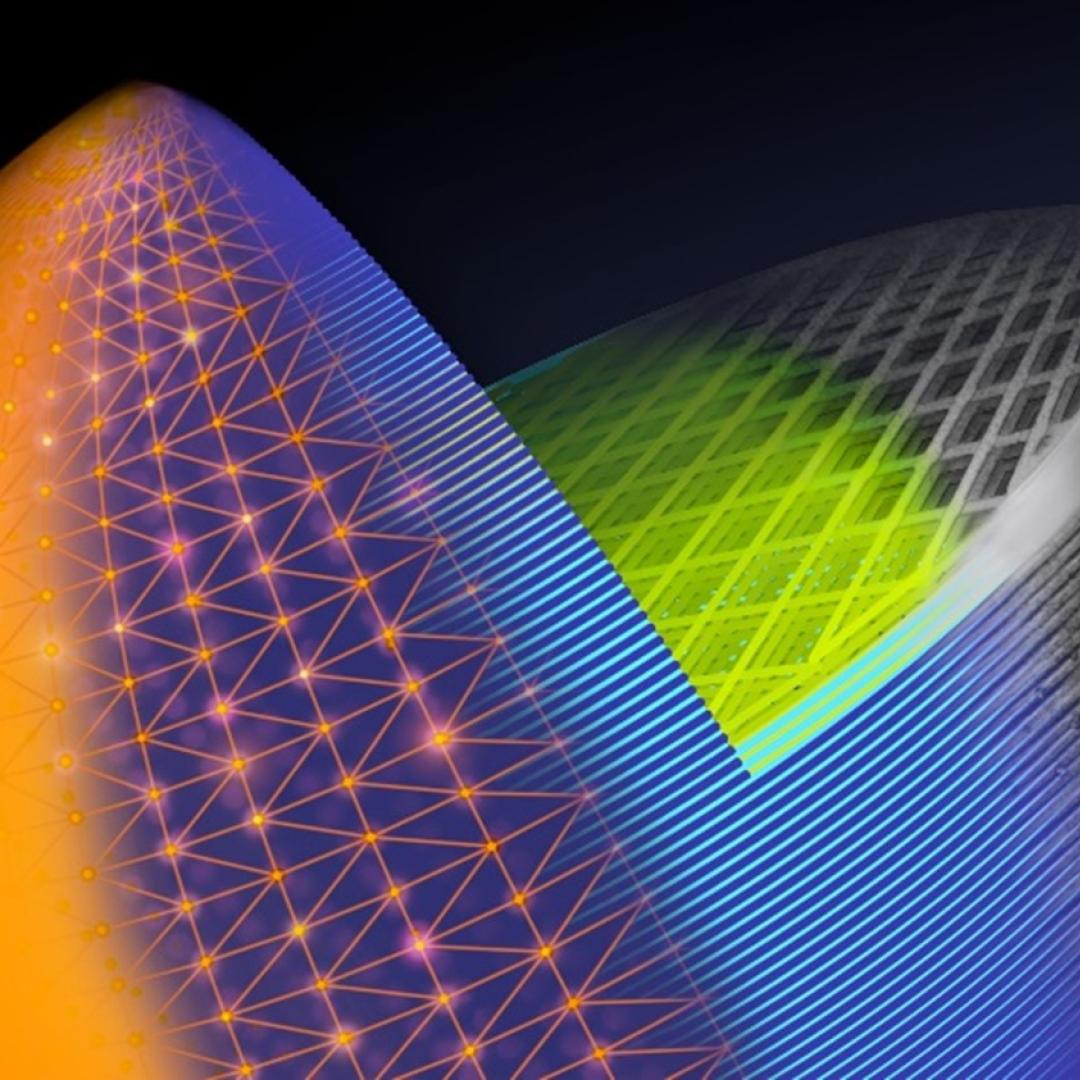
Filter News
Area of Research
- (-) Neutron Science (99)
- (-) Supercomputing (41)
- Advanced Manufacturing (2)
- Biology and Environment (7)
- Clean Energy (13)
- Computational Biology (1)
- Electricity and Smart Grid (1)
- Functional Materials for Energy (1)
- Fusion and Fission (2)
- Fusion Energy (1)
- Materials (36)
- Materials for Computing (5)
- National Security (5)
- Nuclear Science and Technology (5)
News Topics
- (-) Frontier (29)
- (-) Neutron Science (101)
- 3-D Printing/Advanced Manufacturing (10)
- Advanced Reactors (2)
- Artificial Intelligence (39)
- Big Data (20)
- Bioenergy (13)
- Biology (14)
- Biomedical (25)
- Biotechnology (2)
- Buildings (4)
- Chemical Sciences (6)
- Clean Water (2)
- Climate Change (17)
- Composites (1)
- Computer Science (98)
- Coronavirus (17)
- Critical Materials (3)
- Cybersecurity (9)
- Decarbonization (7)
- Energy Storage (14)
- Environment (28)
- Exascale Computing (22)
- Fossil Energy (1)
- Fusion (2)
- Grid (5)
- High-Performance Computing (39)
- Isotopes (1)
- Machine Learning (16)
- Materials (28)
- Materials Science (33)
- Mathematics (1)
- Microscopy (8)
- Molten Salt (1)
- Nanotechnology (19)
- National Security (8)
- Net Zero (1)
- Nuclear Energy (7)
- Partnerships (1)
- Physics (16)
- Polymers (3)
- Quantum Computing (19)
- Quantum Science (29)
- Security (6)
- Simulation (14)
- Software (1)
- Space Exploration (5)
- Summit (42)
- Sustainable Energy (11)
- Transportation (10)
Media Contacts
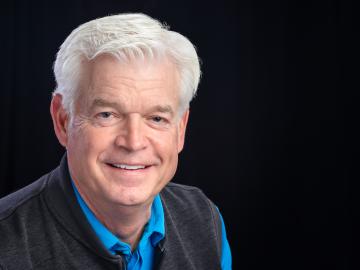
Doug Kothe has been named associate laboratory director for the Computing and Computational Sciences Directorate at ORNL, effective June 6.
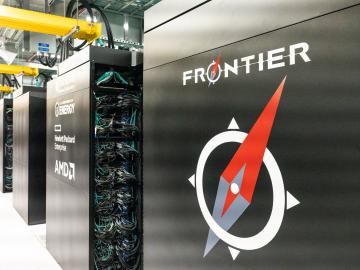
The Frontier supercomputer at the Department of Energy’s Oak Ridge National Laboratory earned the top ranking today as the world’s fastest on the 59th TOP500 list, with 1.1 exaflops of performance. The system is the first to achieve an unprecedented level of computing performance known as exascale, a threshold of a quintillion calculations per second.
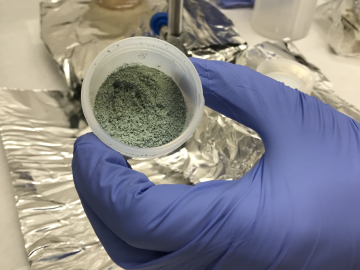
ORNL researchers used the nation’s fastest supercomputer to map the molecular vibrations of an important but little-studied uranium compound produced during the nuclear fuel cycle for results that could lead to a cleaner, safer world.

From helping 750 million viewers watch Princess Diana’s wedding to enabling individual neutron scientists observe subatomic events, Graeme Murdoch has helped engineer some of the world’s grandest sights and most exciting scientific discoveries.
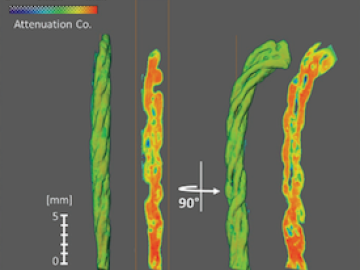
Textile engineering researchers from North Carolina State University used neutrons at Oak Ridge National Laboratory to identify a special wicking mechanism in a type of cotton yarn that allows the fibers to control the flow of liquid across certain strands.
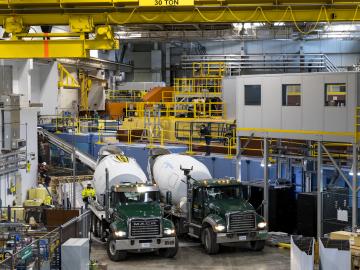
Cement trucks entering and exiting the Spallation Neutron Source are a common sight as construction of the VENUS neutron imaging beamline progresses. Slated for completion and commissioning in 2024-2025, VENUS is the twentieth neutron instrument at SNS and will offer many new capabilities.

Three ORNL scientists have been elected fellows of the American Association for the Advancement of Science, or AAAS, the world’s largest general scientific society and publisher of the Science family of journals.
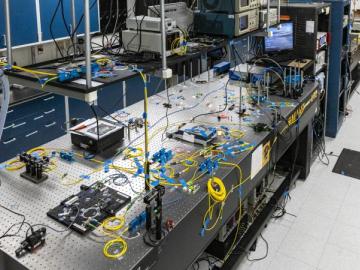
A rapidly emerging consensus in the scientific community predicts the future will be defined by humanity’s ability to exploit the laws of quantum mechanics.

A world-leading researcher in solid electrolytes and sophisticated electron microscopy methods received Oak Ridge National Laboratory’s top science honor today for her work in developing new materials for batteries. The announcement was made during a livestreamed Director’s Awards event hosted by ORNL Director Thomas Zacharia.

The U.S. Department of Energy’s Office of Science announced allocations of supercomputer access to 51 high-impact computational science projects for 2022 through its Innovative and Novel Computational Impact on Theory and Experiment, or INCITE, program.


